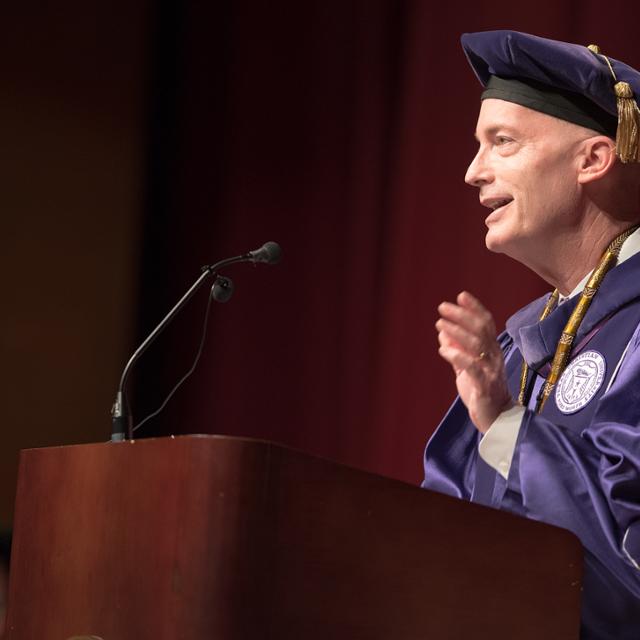
Virtual Convocation Set for Sept. 15
In this season of social distancing, fall Convocation is going online. Chancellor Victor J. Boschini, Jr. and Provost Teresa Abi-Nader Dahlberg will present a virtual event to mark the start of a new academic year — one that shows the resilience of the TCU community and an unwavering commitment by faculty and staff to deliver an engaging learning experience for all students.
Though in a nontraditional format, 2020 Convocation will still feature traditional favorites, such as a performance by the TCU Concert Chorale, introduction of new faculty members, comments from the Student Government Association and Graduate Senate presidents as well as remarks from both Chancellor Boschini and Provost Dahlberg.
In addition, winners will be announced for the Deans’ Award for Research and Creativity and Deans’ Teaching Award; Wassenich Award for Mentoring in the TCU Community; Diversity, Equity and Inclusion Award; and Chancellor’s Award for Distinguished Achievement as a Creative Teacher and Scholar.
Convocation will be available to view at 11 a.m. Tuesday, Sept. 15. Students, faculty and staff will receive an email with the link to watch. Classes will not be canceled.
About the tradition of Convocation
The word “convocation” actually means "a gathering." Convocations are held for a variety of purposes, from celebrating and opening the new academic year to awarding honorary degrees. TCU has historically held Convocation in early fall to mark the beginning of the new academic year. A convocation may also be one of the highlights of an anniversary celebration or a time to recognize the year’s academic awards. Convocations can be university-wide or specific to a school or college to honor a special guest, present college awards, or mark milestones. The John V. Roach Honors College has a convocation in the spring with special speakers, award recognitions and the ceremonial signing of the large Honor’s book by all honors graduates.
The essential elements of a convocation are the same as those of commencement. Convocations begin and end with an academic procession (normally smaller than at commencement), traditionally consisting of faculty, trustees and a platform party. As is customary, the macebearer (or Chief Marshal in the case of TCU), immediately precedes the chancellor, who often is the last to enter.
